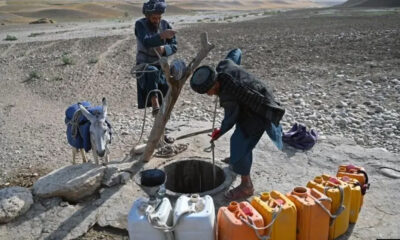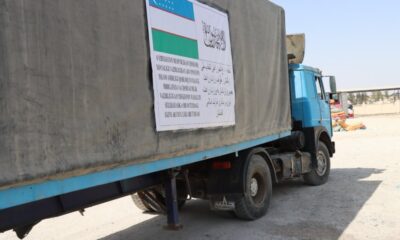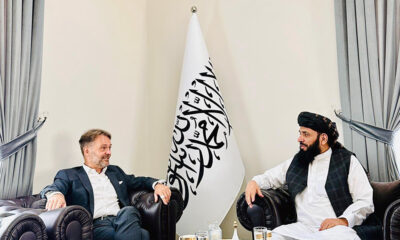World
Saudi embrace of Assad sends strong signal to US
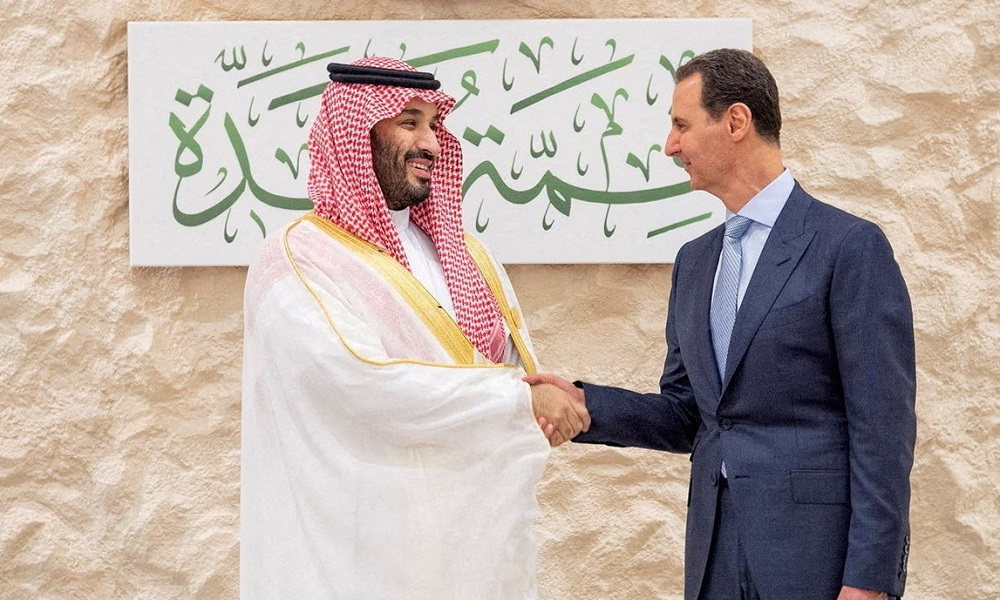
Once labeled a pariah, Saudi Crown Prince Mohammed bin Salman took center stage as master of ceremonies last week when Arab states readmitted Syria to the Arab League, signaling to Washington who calls the regional shots.
His effusive greeting of President Bashar al-Assad at the Arab summit with kissed cheeks and a warm embrace defied U.S. disapproval at Syria’s return to the fold and capped a turnabout in the prince’s fortunes spurred by geopolitical realities, Reuters reported.
The prince, known as MbS, seeks to reassert Saudi Arabia as a regional power by using his place atop an energy giant in an oil-dependent world consumed by the war in Ukraine.
Shunned by Western states after the 2018 killing of journalist Jamal Khashoggi by a Saudi hit squad, the prince has now emerged as a player whom Washington can neither disregard nor disavow, but must deal with on a transactional basis.
Skeptical of U.S. promises on Saudi security and tired of its scolding tone, MbS is instead building ties with other global powers and, regardless of Washington’s consternation, remaking his relations with their shared foes.
His blithe confidence on the world stage was not only visible in his reception of Assad. Ukrainian President Volodymyr Zelenskiy came to the Jeddah meeting and MbS offered to mediate between Kyiv and fellow oil producer Moscow.
Saudi Arabia still depends militarily on the United States, which saved it from possible invasion by Saddam Hussein’s Iraq in 1990, and it monitors Iranian military activity in the Gulf and provides Riyadh with most of its weapons, Reuters reported.
Still, with Washington seemingly less engaged in the Middle East and less receptive to Riyadh’s anxieties, MbS is pursuing his own regional policy with less apparent deference to the views of his most powerful ally.
“This is a strong signal to America that ‘we’re reshaping and redrawing our relations without you’,” said Abdulaziz al-Sager, Chairman of the Gulf Research Center, of the summit.
“He is not getting what he wants from the other side,” Sager added.
The Saudi pivot away from reliance on the United States was meanwhile evident when China mediated this year a settlement between Riyadh and its arch regional foe Iran after years of hostility.
The deal was not made from a position of Saudi strength: Iran’s allies had come out stronger than those of the kingdom in Iraq, Syria and Lebanon, and held most of the populated territory in Yemen.
Still, it showed Riyadh was able to cut its losses and work with U.S. rivals and foes to shore up its regional interests such as cooling the Yemen war where Saudi forces have been bogged down since 2015.
Meanwhile the prince has improved ties with Turkey and ended a boycott of Qatar, a neighbor he considered invading in 2017 according to diplomats and Doha officials.
World
Hamas in talks with US about Gaza ceasefire and aid, says senior Palestinian official
The U.S. had previously held discussions with the Palestinian militant group on securing the release of U.S. hostages held in Gaza, read the report.
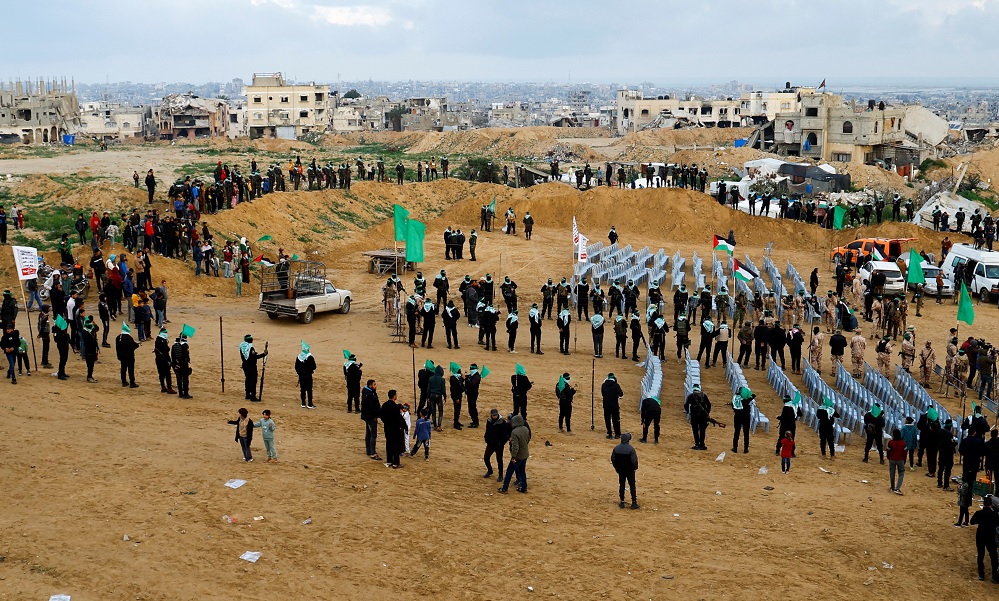
Talks between Hamas and the U.S. administration on a ceasefire in Gaza and the entry of humanitarian aid to the besieged enclave are underway, a senior Palestinian official familiar with the discussions told Reuters on Sunday.
U.S. President Donald Trump recently repeated a pledge to help get food to Palestinians in Gaza. A U.S.-backed mechanism for getting aid into Gaza should take effect soon, Washington’s envoy to Israel also said on Friday.
A State Department spokesperson said: “We cannot speak to ongoing negotiations, but I will note recent statements by Qatar and Egypt that they are continuing to engage in pursuit of an agreement.”
The spokesperson said that Hamas bore sole responsibility for the war as well as for the resumption of hostilities.
“President Trump has made clear the consequences Hamas will face if it continues to hold the hostages, including American Edan Alexander and the bodies of four Americans,” the spokesperson added.
The U.S. had previously held discussions with the Palestinian militant group on securing the release of U.S. hostages held in Gaza, read the report.
Israeli media reported on Sunday that Prime Minister Benjamin Netanyahu had told a closed session of the Foreign Affairs and Defense Committee that Hamas could soon release Alexander, an American-Israeli hostage, as a goodwill gesture towards Trump, who will visit this Middle East this week.
The prime minister’s office did not immediately respond to a request for comment on the reports.
Since March 2, Israel has cut off all supplies to the 2.3 million residents of Gaza, and food stockpiled during a ceasefire at the start of the year has all but run out.
On March 18, Israel effectively ended the January ceasefire agreement with Hamas and renewed its military campaign in Gaza, Reuters reported.
Hamas has said it is willing to free all remaining hostages seized by its gunmen in attacks on communities in southern Israel on October 7, 2023, and agree to a permanent ceasefire if Israel pulls out completely from Gaza.
Israel, vowing the war can only stop once Hamas is stamped out, has said it plans to expand its military campaign in Gaza, which has been devastated during the war and prompted warnings from the U.N. that the population faces imminent famine.
The October 2023 Hamas attacks killed 1,200 people, and 251 were taken hostage back to Gaza, according to Israeli tallies. Israel’s campaign has killed more than 52,800 Palestinians, mostly civilians, according to Hamas-run health authorities.
World
Trump says India, Pakistan agree to ‘full and immediate ceasefire’

U.S. President Donald Trump said on Saturday that India and Pakistan had agreed to a “full and immediate ceasefire” after a fourth day of strikes and counter-strikes against each other’s military installations.
Pakistan’s foreign minister also said both countries had agreed to a ceasefire “with immediate effect” and India’s foreign ministry said it would start at 5 p.m. Indian time (1130 GMT).
“After a long night of talks mediated by the United States, I am pleased to announce that India and Pakistan have agreed to a FULL AND IMMEDIATE CEASEFIRE. Congratulations to both Countries on using Common Sense and Great Intelligence,” Trump said in a post on Truth Social.
The sudden announcement came on a day when fears spiked that the countries’ nuclear arsenals might come into play as Pakistan’s military said a top military and civilian body overseeing its nuclear weapons would meet.
But Pakistan’s defence minister later said no such meeting was scheduled.
At the same time, officials from both sides showed a willingness to take a step back following the day’s exchanges, as the combined civilian death toll on the two sides rose to 66.
“Pakistan and India have agreed to a ceasefire with immediate effect,” Pakistani Foreign minister Ishaq Dar posted on X. “Pakistan has always strived for peace and security in the region, without compromising on its sovereignty and territorial integrity!”
India’s foreign ministry said that the head of Pakistan’s military operations called his Indian counterpart on Saturday afternoon and it was agreed that both sides would stop all firing.
The two heads will speak to each other again on May 12, the ministry added.
The fighting began on Wednesday when India carried out strikes on what it said was “terrorist infrastructure” in Pakistani Kashmir and Pakistan, two weeks after 26 people were killed in an attack on Hindu tourists in Indian Kashmir.
Pakistan denied India’s accusations that it was involved in the tourist attack. Since Wednesday, the two countries have exchanged cross-border fire and shelling, and sent drones and missiles into each other’s airspace.
The countries have been locked in a dispute over Kashmir since they were born after the end of British colonial rule in 1947. Hindu-majority India and Islamic Pakistan both claim Kashmir in full but rule it in part.
They have gone to war three times since, including twice over Kashmir, and clashed several times.
India blames Pakistan for an insurgency in its part of Kashmir that began in 1989 and has killed tens of thousands. It also blames Pakistani Islamist militant groups for attacks elsewhere in India.
Pakistan rejects both charges. It says it only provides moral, political and diplomatic support to Kashmiri separatists.
(Reuters)
World
US offers to help India and Pakistan start talks, G7 also urges dialogue
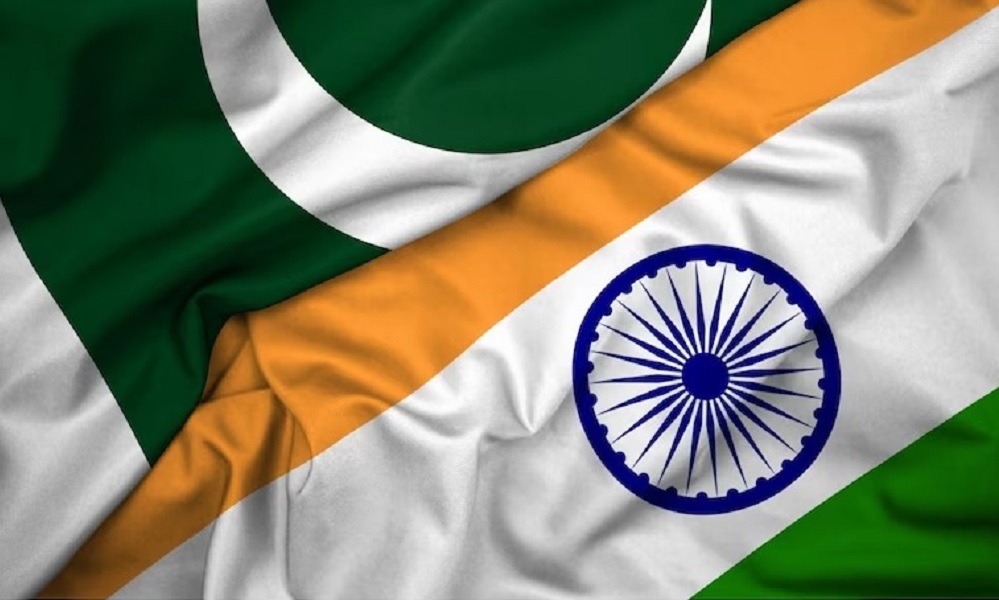
The U.S. government said it offered assistance to make India and Pakistan start “constructive talks” while the Group of Seven (G7) major countries also urged the Asian neighbors to engage in direct dialogue amid heightened hostilities.
World powers have raised the alarm over the latest escalation in the decades-old India-Pakistan rivalry. India hit Pakistan with air strikes and missiles on Wednesday and since then the nuclear-armed countries have been clashing daily while launching strikes against each other’s military installations on Saturday. Dozens have been killed.
The U.S., especially Secretary of State Marco Rubio, has held regular talks with both India and Pakistan since late April and urged them to de-escalate.
The U.S. State Department late on Friday and early Saturday released three statements on Rubio’s calls with Pakistan Army Chief Asim Munir, and the foreign ministers of India and Pakistan.
It said Rubio urged them to “re-establish direct communication to avoid miscalculation” while offering U.S. assistance “in starting constructive talks” to avoid future conflicts.
Michael Kugelman, a Washington-based South Asia analyst and writer for the Foreign Policy magazine, said Rubio’s decision to call the army chief directly was “the most consequential move the U.S. has made” since the start of the crisis:
“If you want to talk to the Pakistanis about de-escalation, you need to talk to General Munir.”
President Donald Trump said earlier this week the rising tensions were a shame. U.S. Vice President JD Vance said a war would be “none of our business.”
In recent years, India has been seen as a partner by Western powers to counter China’s rising influence. Pakistan is a U.S. ally although its importance has diminished since Washington’s 2021 withdrawal from neighboring Afghanistan.
In a G7 statement, the foreign ministers of Canada, France, Germany, Italy, Japan, the U.S., Britain and the European Union said they “strongly condemn” an April 22 Islamist militant attack in which 26 people were killed in India-administered Kashmir. India blamed Pakistan, which denied the accusations and called for a neutral probe.
“We call for immediate de-escalation and encourage both countries to engage in direct dialogue towards a peaceful outcome,” the G7 top diplomats said.
Muslim-majority Kashmir is claimed in full but ruled only in part by both Hindu-majority India and Islamic Pakistan and has seen wars, insurgency and diplomatic stand-offs over the decades.
(Reuters)
-

 Regional5 days ago
Regional5 days agoIndia dismisses report of Pakistan downing jets as “disinformation”
-

 Sport4 days ago
Sport4 days agoAriana Television to broadcast 4th edition of Afghanistan Futsal Premier League
-

 Latest News4 days ago
Latest News4 days agoTAPI pipeline to reach Herat by end of 2025: Ministry
-

 Latest News4 days ago
Latest News4 days agoNearly one-third grapple with hunger in Afghanistan: WFP
-

 Sport4 days ago
Sport4 days agoIPL 2025: Dharamsala match abandoned due to security concerns
-
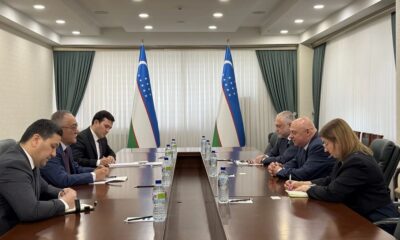
 Latest News4 days ago
Latest News4 days agoUzbekistan, Poland discuss cooperation over Afghanistan
-

 Regional4 days ago
Regional4 days agoIndia says military stations attacked by Pakistan drones and missiles
-

 Tahawol5 days ago
Tahawol5 days agoTahawol: Ministry of Labor and Social Affairs’ activities reviewed








